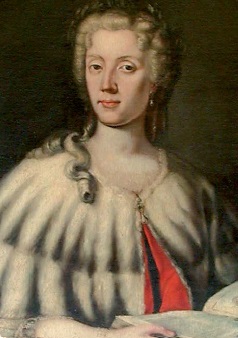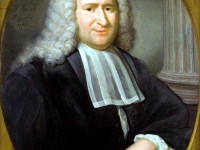
Laura Bassi (October 1711 – 20 February 1778)
Between October 20 and October 29, 1711, Italian physicist and academic Laura Maria Caterina Bassi was born. Bassi is referred to as being the first woman to earn a professorship in physics at a university in Europe and is recognized as the first woman in the world to earn a university chair in a scientific field of studies. She contributed immensely to the field of science while also helping to spread the field of Newtonianism through Italy.
Family Background and Education
Laura Bassi was born in Bologna into the wealthy family of a lawyer. The date of her birth is contested in various different sources ranging between October 20 and October 29, 1711. She was privately educated, beginning at the age of 13 and continuing for seven years, by Gaetano Tacconi, who was the Bassi family doctor and a professor of medicine and philosophy at the University of Bologna.[1] The two began to drift apart after Bassi discovered her intrigue for Newtonian science despite Tacconi’s wish for her focus on the less controversial Cartesian beliefs. Her cousin, Father Lorenzo Stegani tutored her in Latin, French and arithmetic.
The second Woman in the World to Earn a Philosophy Doctorate
In 1731 Tacconi invited philosophers from the university, as well as the archbishop of Bologna, Prospero Cardinal Lambertini, to examine her progress. Lambertini and the philosophers were very impressed. Word quickly spread of Bassi’s intelligence, and in 1732 she was at the centre of a series of public events organized by Lambertini. On March 20 Bassi was admitted to the Bologna Academy of Sciences as an honorary member, and she was its first female member. April 17, at age 20, Bassi defended her theses for the degree of doctor of philosophy in the Palazzo Publico. On May 12, when Bassi received her degree, the excitement in Bologna over her accomplishments culminated in public celebrations and with collections of poetry published in her honour. On June 27 she defended another set of theses about the properties of water, which led to her being awarded an honorary post at the university as a professor in physics.[1] Thus, Bassi became the second woman in the world to earn a philosophy doctorate after Elena Cornaro Piscopia in 1678, fifty-four years prior.[3] Germany’s first female doctorate was earned by Dorothea Erxleben in medical sciences in 1715.[2]
Lecturing at the University of Bologna
On October 29, 1732, the University of Bologna granted Bassi’s professorship in philosophy at the University of Bologna thus also making her a member of the Academy of the Sciences. The first lecture she gave was titled “De aqua corpore naturali elemento aliorum corporum parte universi”(Water as a natural element of all other bodies). The University, however, still held a value that women were to lead a private life. From 1746 to 1777 she gave only one formal dissertation per year ranging in topic from the problem of gravity to electricity. It is reported that she gave at least thirty-one dissertations to the university. Because she could not lecture publicly at the university regularly, she began conducting private lessons and experiments from home in the year of 1749. This allowed her to veer away from the constraints of the university and explore new ideas.
The Benedettini
Bassi was an early proponent of Newtonian physics and based her courses on material found in Newton’s Principia.[7] In 1740 Lambertini became Pope Benedict XIV, and in 1745 he reorganized the Bologna Academy of Sciences to create a special group of 25 scientists, called the Benedettini, who were expected to regularly present their research. Bassi lobbied Benedict XIV to become the 25th Benedettini. For a woman to be awarded such an honor was particularly controversial, so Benedict XIV compromised and named Bassi to the Benedettini but without the same voting privileges as the other 24.[1]
More Academic Responsibilities
Due to her increase in responsibilities and public appearances on behalf of the university, Bassi was able to petition for regular pay increases, which in turn was used to pay for her advanced equipment. Bassi earned the highest salary paid by the University of Bologna of 1,200 lire. Bassi added an additional teaching position to her schedule in 1766. That year, she became the preceptor for experimental physics for students attending the Collegio Montalto. The Collegio was not a traditional learning institution like the University of Bologna. Its students, primarily those from the March Province, were taught in professors’ homes. The college was basically a free seminary, founded by Pope Sixtus V, whose students earned degrees in theology, law, or both.[4]
Scientific Work
Bassi’s main contributions were made in physics although she wrote papers on a number of other scientific subjects including two mathematics papers. This was a time when physics was still divided between the views of Descartes and those of Newton. Bassi was a staunch supporter of Newton and her lectures were designed to introduce her students to Newtonian physics. Of 28 papers by Bassi which are held in the Bologna Academy of Sciences in Bologna, thirteen are on physics, eleven are on hydraulics, two are on mathematics, one is on mechanics, one is on technology, and one is on chemistry. Rather strangely, the main subject on which Bassi undertook experimental work was electricity yet she never wrote a paper on the topic. [5]
The first Woman with a University Chair
In 1772 Paolo Balbi, chair of experimental physics, died suddenly. Bassi’s husband Verratti was Balbi’s longtime assistant, however, Bassi believed she could fill the vacancy. Thus, in 1776, at the age of 65, she was appointed to the chair in experimental physics by the Bologna Institute of Sciences with her husband as a teaching assistant. Two years later she died on February 20, 1778, leaving her husband and four of their children, having made science into a lifelong career and advanced the status of women in academic circles.
Laura Bassi died on February 20, 1778 at the age of 67
Monique Frize, Laura Bassi and Science in the 18th Century, [8]
References and Further Reading:
- [1] Ceranski, Beate (1970–1980). “Bassi Verati (Veratti), Laura Maria Caterina”. Dictionary of Scientific Biography. Vol. 19. New York: Charles Scribner’s Sons. pp. 202–04.
- [2] Dorothea Erxleben – Germany’s First Female Medical Doctor, SciHi Blog, November 13, 2014
- [3] Elena Cornaro Piscopia, PhD, SciHi Blog, June 25, 2013.
- [4] “Laura Bassi.” Encyclopedia of World Biography. Encyclopedia.com.
- [5] O’Connor, John J.; Robertson, Edmund F., “Laura Bassi“, MacTutor History of Mathematics archive, University of St Andrews.
- [6] Laura Bassi at Wikidata
- [7] Sir Isaac Newton and the famous Principia, SciHi Blog
- [8] Monique Frize, Laura Bassi and Science in the 18th Century, Leading Pictures @ youtube
- [9] Findlen, Paula (1993). “Science as a career in Enlightenment Italy: The strategies of Laura Bassi”. Isis. 84 (3): 441–69
- [10] “Laura Bassi – University of Bologna”. www.unibo.it.
- [11] Logan, Gabriella Berti (2003). “Women and the Practice and Teaching of Medicine in Bologna in the Eighteenth and Early Nineteenth Centuries”. Bulletin of the History of Medicine. 77 (3): 506–35.
- [12] Timeline of 18th century Woman Scientists, via DBpedia and Wikidata





